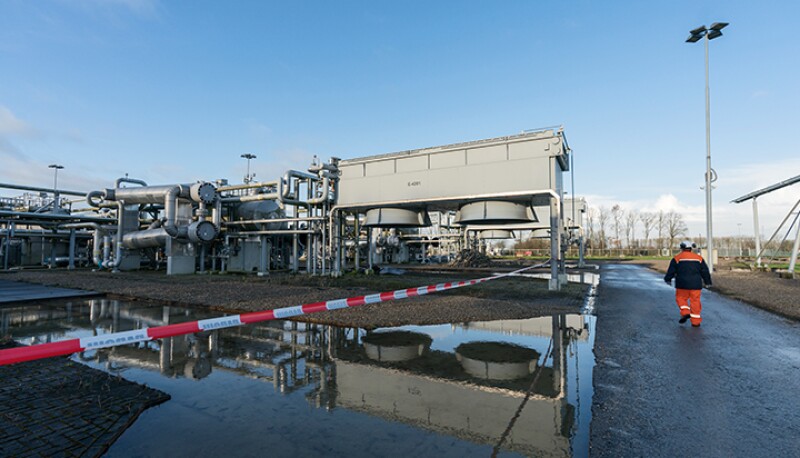The Dutch Senate has voted to permanently halt natural gas production from the Groningen field located just north of the Netherlands. Production from the field, operated by NAM—a Shell/ExxonMobil joint venture—has been linked to seismic activities that have caused damage to buildings in the area.
The Senate originally pushed back on a proposed law that would halt production from the field by 1 October 2024 with certain members seeking guarantees to ensure that the move did not jeopardize the security of gas supply for the nation.
Gas production at the field ceased last October, following years of output cuts. However, during a cold snap in recent months, the field was temporarily available for limited production.
In response to the Senate’s concerns, the government has assured that the risk regarding the security of supply is minimal and would occur only if the country encountered two exceptionally cold winters in a row, according to Reuters.
“There are plenty of reasons to close gas extraction. Some people find them emotional; I find them rational,” said outgoing State Secretary Hans Vijlbrief. “Groningen gas cannot be extracted safely. This has been denied for years and has led to, among other things, a huge breach of trust. We close because gas extraction is unsafe, not because we think people are sad. We close because earthquakes make people sick and destroy communities. There’s nothing emotional about that at all.”
Shell and ExxonMobil have sought an arbitration court to come to a decision about whether they should receive compensation from the Dutch government for halting gas production at Groningen, which still has huge reserves.
The Dutch treasury has received approximately EUR 363 billion ($391.13 billion) since production began in the 1960s. Shell and Exxon's profit from Groningen, at that time, was around EUR 66 billion.
Groningen was discovered in 1959 and is the largest gas field in Europe. Estimates have the field’s remaining, recoverable gas reserves at around 450 billion m3.


